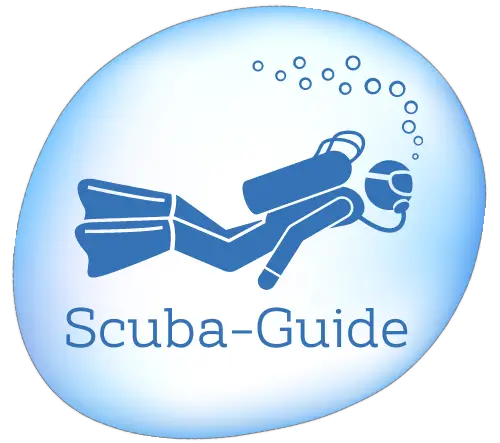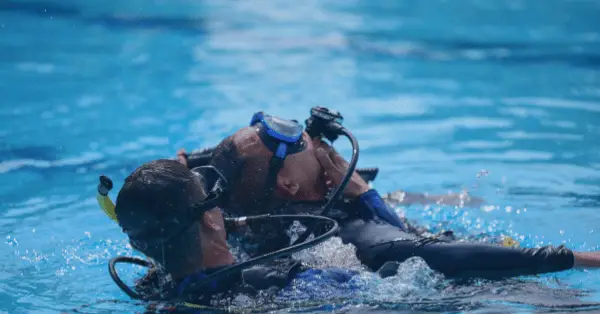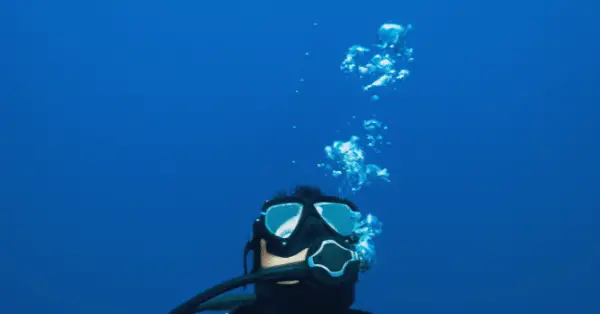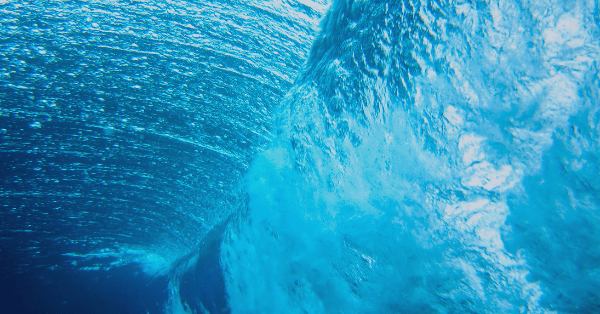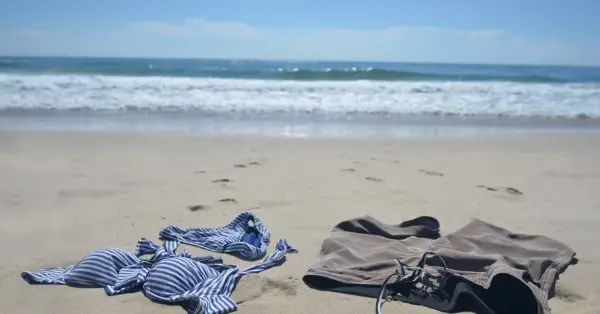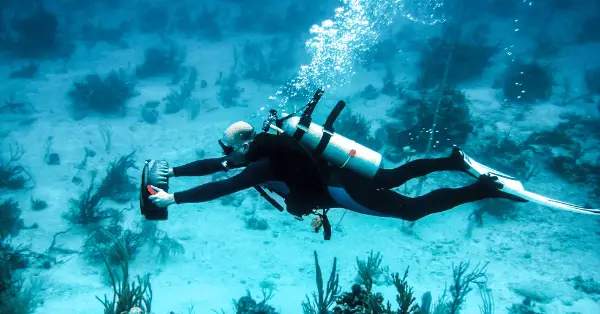Dive into Scuba Lingo – A comprehensive lexicon of the most common terms
I would argue that the English language is more difficult to learn than how to scuba dive. In this lexicon, we will cover the most common scuba diving terminology you need to know and understand, as well as some grammar rules, like dove or dived…what is correct?
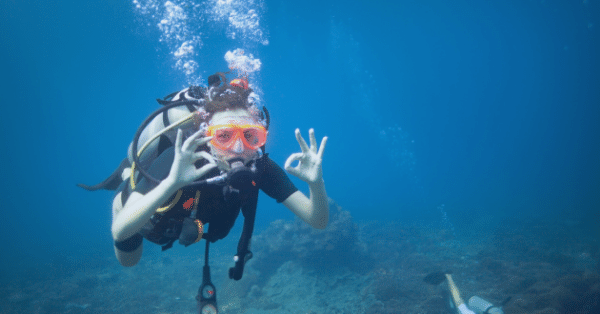
Dived vs dove: What’s the correct past tense of to dive?
Debates over the correct past tense of ‘dive’ have long been a point of contention in the diving community. To settle this argument once and for all, both dived and dove are indeed accepted versions – it’s really just a matter of locality and vernacular preference.
Dived and dove are both past-tense conjugations of the verb “dive,” implying that this activity has already occurred.
Dove is much more common in American English, and dived is mainly used in British English.
Despite this American vs. British English distinction, both dove and dived are accepted by dictionaries on either side of the Atlantic Ocean. In fact, some US writing style guides even consider dived to be the traditional term.
One thing, however, that makes a case for the term dived is the past tense of conjugated words. For example, I deep-dived or cave-dived, versus the wrong conjugated version of deep-dove and cave-dove.
The correct past perfect of dive
When we look at a similar word drive, we say drive, drove, have driven. For to dive we would be tempted to use the same logic, but this doesn’t work:
- Present tense: (to) dive
- Past tense: Dived (or dove)
- Past perfect: have dived/had dived
- Incorrect past perfect:
- have/had dove
- have/had diven
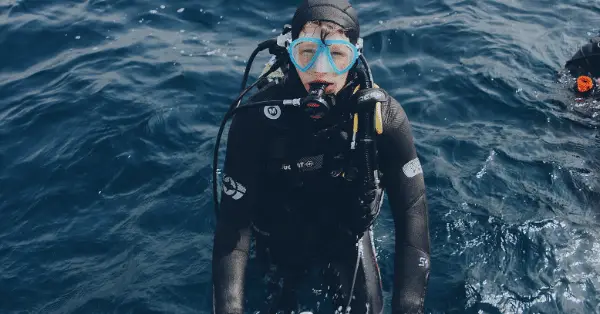
Correct plural scuba diving terms
What’s the correct plural of Fish?
It’s one fish, but what if we see two or more? The correct plural of fish is both… I know confusing.
- One fish, and many fish of the same species. For example, there are many barracudas, I saw at least 50 fish.
- Two fish species, or two fishes. When we see multiple fish species, we can say fishes, e.g. I saw barracuda and snappers. There are many fishes at this reef.
What’s a group of fish called: Shoal or school of fish?
- School of fish is a group of the same species swimming synchronized as a whole
- Shoal of fish can be one or more species of fish swimming loosely together. For example, there is a big shoal of fish roaming around the wreck. Meaning, there are much different fish swimming around the shipwreck.
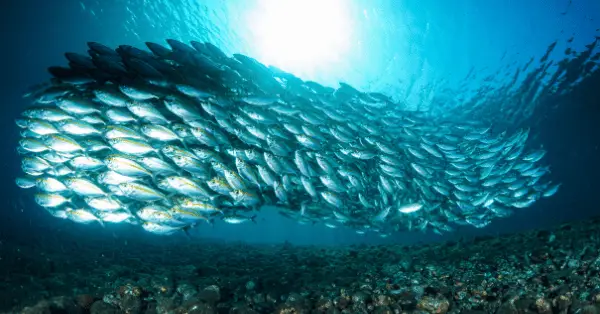
Much or many fish?
Much is used for uncountable nouns, e.g. money (you can’t have 5 money).
Many is used for countable nouns, like cars (I saw 5 cars).
Fish can be countable and uncountable depending on the context. If you refer to a shoal or school of fish, it’s not possible to count. If you refer to a small group of clown fish, and you could say there were 5 clown fish in the soft coral, many could be used, too.
What’s the plural of Octopus?
The correct plural of octopus is octopuses. From the Greek roots, octopodes could be correct, as well, but it’s rarely used and sounds a little funny to an English ear.
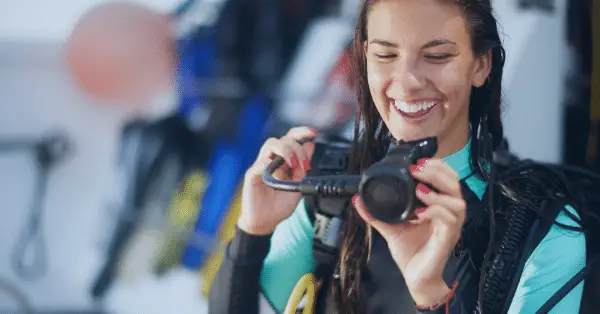
Scuba diving & equipment terminology
What does scuba mean/stand for?
S.C.U.B.A is an acronym, it stands for Self-Contained Underwater Breathing Apparatus.
Other scuba acronyms
- AAS: Alternate Air Source – your second air supply in case of an emergency
- BCD: Buoyancy Control Device (or also Buoyancy Compensation Device) – the jacket that can be filled (or released) with air to keep a scuba diver neutrally buoyant underwater and buoyant on the surface.
- DCS – Decompression Sickness (also called the scuba diving bends)
- EANx: Enriched Air Nitrox for specialty gas mixture diving
- NDL – No Decompression Limits are the time divers need to stay at specific depth limits to dive safely and not absorb hazardous nitrogen levels.
